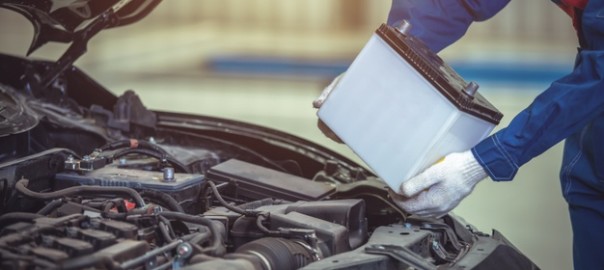A very common cause of stranded cars – leading to calls to Towing Chicago for our expert Chicagoland roadside assistance service – is issues with car batteries in the Winter. Wintertime cold weather can severely affect the ability of vehicle batteries to perform correctly due to battery degradation. Here’s a guide to how cold weather affects your car’s battery.
Cold Weather’s Effect on the Chemical Reactions in Batteries
No matter what type of battery or battery banks your car has – whether it be nickel cadmium, lithium polymer, or lead acid – they require a proper balance of chemical components to work effectively. All batteries are made of components including cathodes, anodes, electrolytes, separators, and collectors. To explain it basically, batteries work by freeing up a group of electrons and creating an electrical current through electrochemical reactions that occur within the cathode and anode of the battery surrounded by electrolyte solution. This vital chemical reaction is made to perform MUCH SLOWER during cold weather, as does all natural processes (think how food takes longer to spoil when stored in a refrigerator.)
Sulfating and Undercharging
These issues are connected, and occur to all batteries over time, but much faster in cold weather. Sulfating is caused when the acid solution sulfate of a battery coats the cell’s plates, which makes it so that the battery cannot hold and/or release electricity. Undercharging occurs when a fan belt is slipping, a voltage regulator is damaged, an alternator is degrading, or when the engine is used for too many short trips – basically, it means that the battery doesn’t get enough of a charge when the engine is running, and develops a symptom called memory effect. Memory effect describes the situation when the sulfate is not sent electrically into the electrolyte, which makes it so the battery cannot fully charge. Cold Winter temperatures make all these issues much worse – especially in older batteries that were already experiencing these processes to a light degree.

